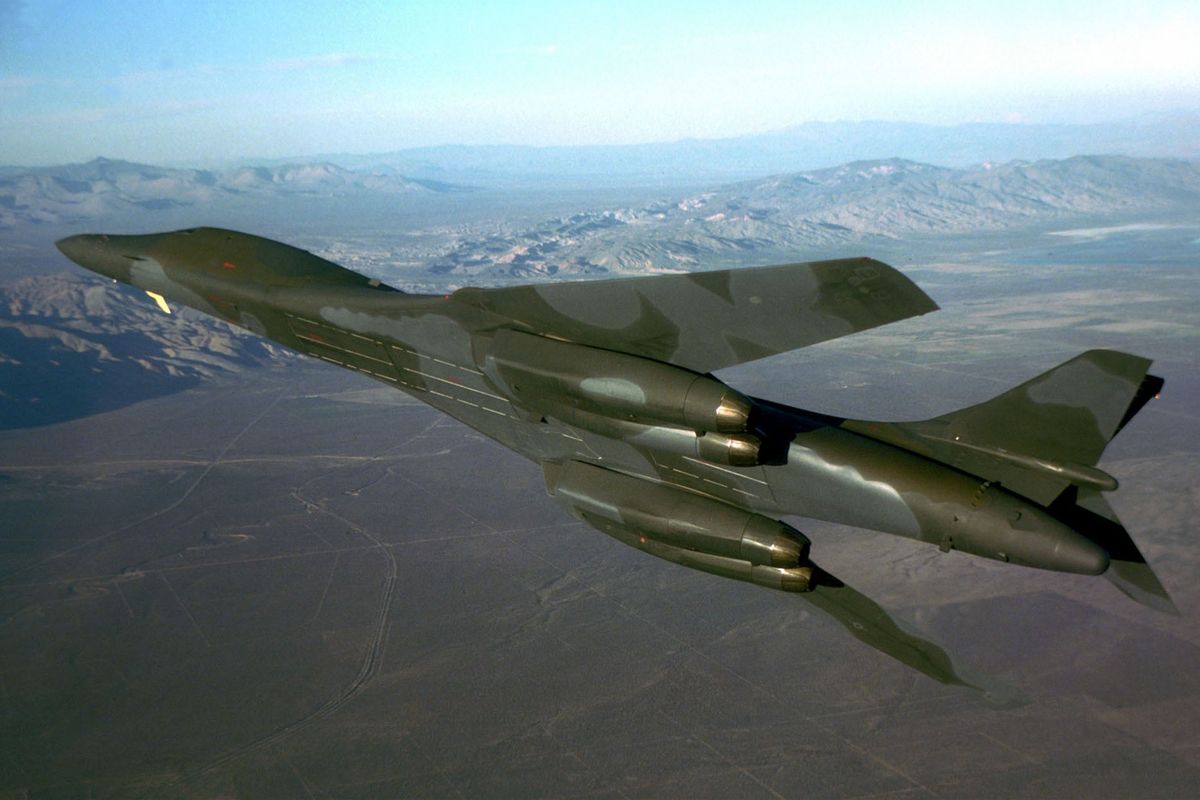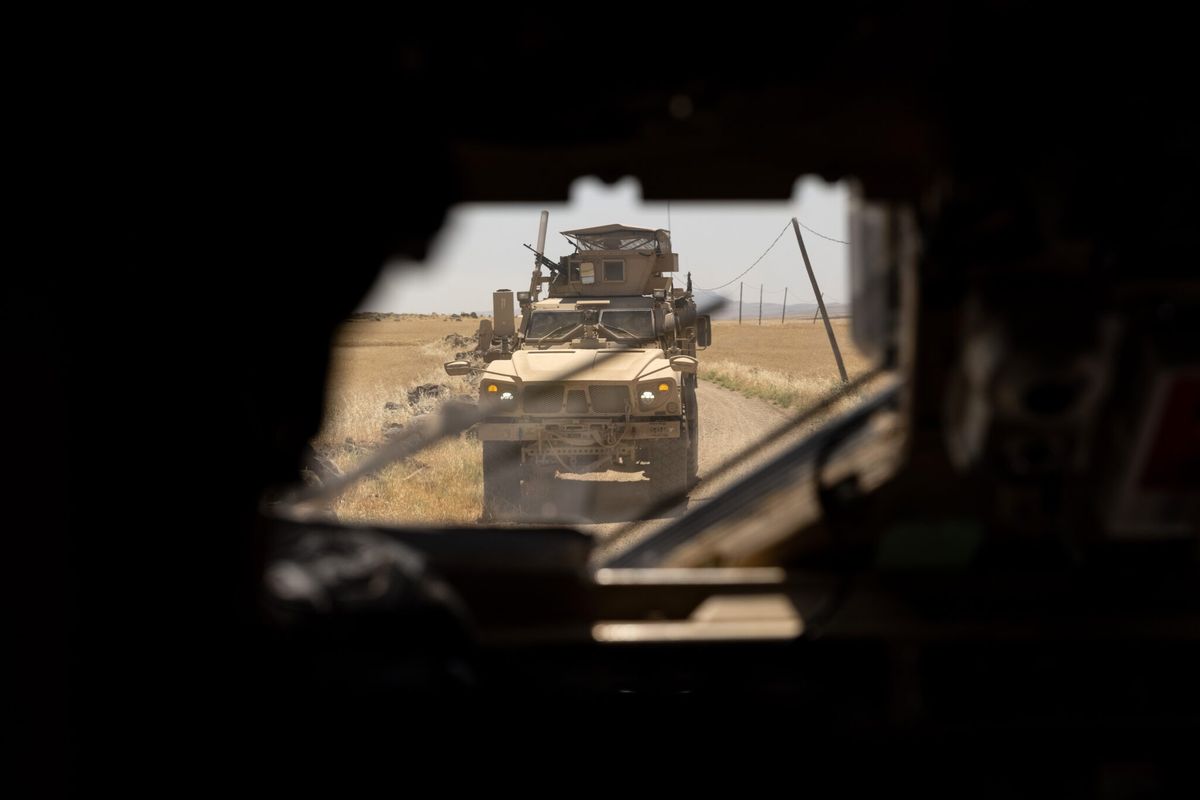On July 4 1821, John Quincy Adams gave an historic address to Congress, in which he stated that, while America may support the cause of freedom with “benedictions and prayers…she goes not abroad in search of monsters to destroy.” However, from the Spanish-American War of 1898 to the U.S. invasion of Iraq in 2003, or the Libyan air campaign in 2011, this elegant appeal to noninterventionism has given way, time and again, to U.S. adventures abroad.
Today, as conflicts and humanitarian crises abound, the United States is called upon more frequently than ever to put its military and diplomatic preponderance to use. Yet, at the same time, 15 years of war in Afghanistan and over a decade of involvement in Iraq have deeply cut the American appetite for military intervention, at least the kind that puts U.S. troops in harm’s way.
The civil conflict in Syria, which has now claimed approximately 400,000 lives and displaced millions more, epitomizes this modern conundrum. As the killing intensifies in Aleppo and the presidential race enters its last month, will America extend its partial intervention in Syria to pursue a final end to the conflict? Perhaps more important, should she?
These are difficult questions to answer, partly because the current iteration of U.S. intervention in Syria is so complex. Following the outbreak of war in early 2011, the Obama administration initiated U.S. intervention in the conflict with President Barack Obama’s call for the resignation of Syrian President Bashar al Assad on August 18 2011, followed by a series of efforts to provide non-lethal equipment, small arms, training, and support to Syrian opposition forces.
However, those programs were widely seen as haphazard and ineffective, hampered by fears of accidentally arming malicious groups and encouraging U.S. mission creep. When widespread confidence in Assad’s inevitable fall began to falter by mid-2011, Obama reportedly overruled the advice of senior members from his foreign policy team to step up weapons shipments and military training missions to the rebels. Similarly, following the Assad regime’s use of chemical weapons in September 2013, the Obama administration backed away from its previously declared “red line,” which promised U.S. military retaliation in response to a chemical attack.
The rise of ISIS – also known as Islamic State – and their June 2014 declaration of a Caliphate in territory stretching from Aleppo in Syria to the Iraqi province of Diyala reversed some of this reticence. In response to ISIS’ shocking territorial gains and international ambitions, Washington has significantly stepped up shipments of materiel, air support operations, and training to a loose coalition of rebel groups (anti Assad groups who are also opposed to ISIS) generally organized under the umbrella of the “Syrian Democratic Forces.” But, as Edward Luttwak, Senior Associate at CSIS and author of numerous works on strategy, notes, the heart of this allied force is made up of Syrian Kurds. Through them, the United States “acquired the means to intervene in Syria, but only in a very peripheral part of Syria.” Washington does not yet possess the means or, apparently, the inclination to exert direct military leverage over the Assad regime.
This fact now poses a seemingly insurmountable dilemma to U.S. policy in Syria and the region at large. The temporary ceasefire agreement reached between Russia and the United States this September has completely collapsed, and the battle between the opposition forces and Syrian government forces – joined by Russian airstrikes and Iranian, Lebanese, and Iraqi militias on the ground – in eastern Aleppo has reached a fever pitch. As Syrian and Russian airstrikes target critical infrastructure with bunker-busting bombs, analysts like John Sipher, Director of Client Services at CrossLead and former member of the CIA’s Senior Intelligence Service, have begun to ask whether Aleppo could be Syria’s “Srebrenica moment,” the 1995 massacre of Muslim Bosniaks by Bosnian Serbs. Just as in Syria, writes Sipher, “diplomatic efforts to stop the carnage [in Bosnia] went nowhere and only seemed to empower the guilty.” But, after Srebrenica, “the U.S.-led bombing campaign changed the dynamic on the ground and quickly led to the Dayton accords and an end to the war.”
However, Syria is very different from Yugoslavia, and Sipher admits, Aleppo may not prove to be the Srebrenica “tipping point” for western intervention. Even if it were, would that intervention be good for Syria?
Luttwak thinks not. To him, the U.S. has no natural ally in Syria besides the Kurds, who can only effectively operate in a relatively narrow strip of territory. To exacerbate this dynamic, the Syrian war has now attracted significant intervention from Iran, Shi’a militias in Iraq and Lebanon, Syrian and Iraqi Kurds, Turkey, and the Arab Gulf states, among others. By attempting to operate in this morass, America is stuck “arming its enemies to fight its friends, while also trying to find friends to attack its enemies.” The only way that the United States could effectively operate on such a battlefield is to create its own ally, in other words send an army, but in his opinion that option is neither rational, nor politically realistic.
On the broader historic scale, Syria is just a recent manifestation of what Luttwak believes to be an inherent flaw in the way that the post-1945 world order deals with conflict. According to Luttwak, intervention in places like Syria or Bosnia has “not allowed war to achieve its only possible function, which is peace by a process of exhaustion.” By attempting to constantly interrupt war with ceasefires and negotiations, “we are littering the world with unresolved conflicts. Not peace but frozen war.” At the same time, by housing, feeding, and supporting the people displaced by war, we create frozen populations that are unable to find new homes, livelihoods, and identities as refugee populations did in the past.
Needless to say, this is a controversial view. To most, lasting peace will be achieved only through international negotiations, held in conjunction with a stable ceasefire and access to humanitarian aid. However, that such a peace cannot be effectively achieved without changing the balance of forces on the ground is now abundantly clear. Bashar al Assad and his Russian allies seem convinced that they can win on the battlefield, at least in Aleppo, and they are unlikely to return to the negotiating table until that goal has been achieved or facts on the ground change. “Just like in Bosnia,” writes Sipher, “it is unlikely that there will be any accord in Syria unless and until the West takes military action.” Bereft of Syrian allies and loath to create its own, it remains to be seen where the West, and Washington in particular, can find the will for such action.
Fritz Lodge is an international producer at The Cipher Brief.













